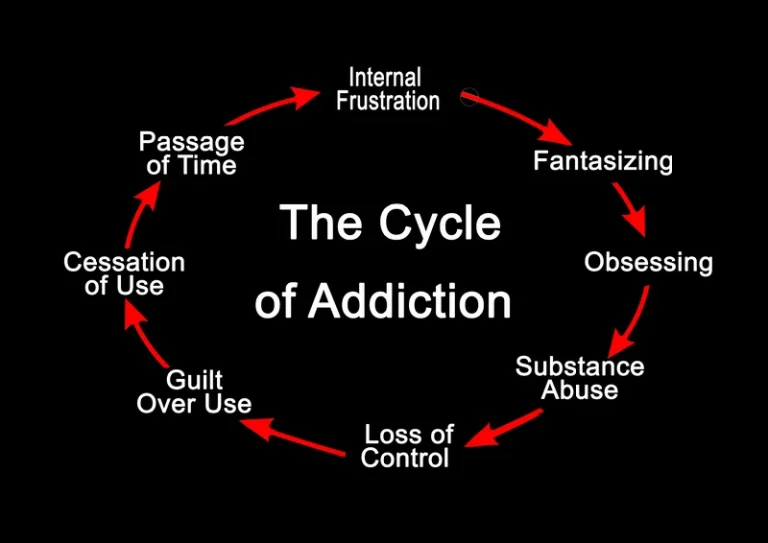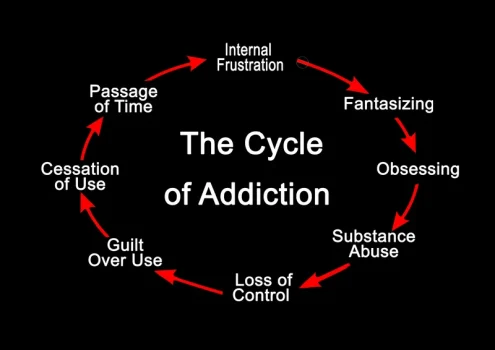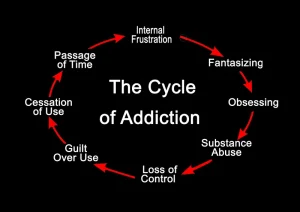The Cycle of Alcohol Addiction National Institute on Alcohol Abuse and Alcoholism NIAAA

Tolerance is an early indicator of both physical and psychological dependence, as a person must use more to reach the same level of intoxication. The increasing tolerance can lead to more frequent and larger doses, often without the person realizing the extent of this gradual escalation. In addition, medications may be able https://ecosoberhouse.com/article/alcoholic-ketoacidosis-symptoms-and-treatment/ to help ease or stop drinking and guard against relapses. Close to 88,000 people in the U.S. die from alcohol-related causes every year.
What Is Alcohol Use Disorder?
- It is often a long and bumpy path, and relapse is nearly inevitable—but that doesn’t spell the end of recovery.
- It’s important to remember that different individuals respond differently to various therapeutic approaches.
- It draws on aspects of cognitive-behavioral therapy (CBT) and helps members to build motivation, cope with cravings, change addictive thoughts, and adopt healthy habits.
- By recognizing and avoiding these triggers, individuals can create a supportive and alcohol-free environment.
- This may involve engaging in activities such as exercise, meditation, or creative outlets.
- Approximately 15 percent of those who relapse regress to the precontemplation stage, and approximately 85 percent return to the contemplation stage before progressing to the preparation and action stages.
In one study, two-thirds of the adults relapsed in social situations in which they experienced urges and temptations to drink or use. One third experienced relapses when they were experiencing negative emotions and urges to drink/use. By contrast, most adolescents relapsed in social settings when they were trying to enhance a positive emotional state. A small group of adolescents relapsed when facing interpersonal difficulties accompanied by negative emotions and social pressures to drink or use. Treatment and education can help adults learn techniques for handling urges and ways of accepting and managing negative emotions.
- AddictionResource.net, and its parent company Recovery Guide LLC, is not a provider of substance use disorder treatment services and receives compensation from Treatment X LLC in the form of paid advertising.
- The alcoholic is sober and has no cravings for alcohol, and there is no threat of relapse.
- These support groups and their recovery Steps provide social support to people when they need it.
How To Detox Your Body Before a Drug Test
Reducing the risk of relapse in addiction recovery is intricately tied to building a supportive environment that fosters well-being and sustains positive behavioral changes. A robust support system plays a pivotal role in an individual’s journey towards recovery. This support can come from family, friends, support groups, or a combination of these, offering encouragement, understanding, and a sense of belonging. The success rate for alcohol recovery varies, but studies have shown that individuals who receive treatment for alcohol addiction have a higher chance of achieving long-term sobriety than those who do not seek treatment. There are various types of support groups available for individuals in alcohol recovery.
How To Detox for a Drug Test?

Nurturing long-term recovery involves ongoing commitment to personal growth, self-reflection, and accountability. It’s essential to continue attending support groups, counseling sessions, or therapy to address any underlying issues and maintain a strong support system. Regular check-ins with healthcare professionals and therapists can provide guidance, monitor progress, and offer assistance during challenging times. Moreover, alcohol recovery plays a vital role in reducing the risk of alcohol-related health issues, such as liver disease, cardiovascular problems, and mental health disorders. It allows individuals to address underlying psychological and emotional issues that may have contributed to their addiction. Through recovery, individuals can develop healthier coping mechanisms, build resilience, and pave the way for a brighter future.


Moving through alcohol withdrawal involves physical symptoms like tremors, sweating, and nausea, as well as emotional challenges like anxiety and mood swings. Start drug detox at home with a strong support system, clear goals, and professional guidance from a drug rehab center in Brooklyn for a safer, effective recovery journey. Discover what drug detox is like, from managing physical and emotional challenges to the importance of support systems and aftercare for lasting recovery. This may include engaging in regular exercise, pursuing hobbies and interests, and practicing stress-management techniques such as meditation or therapy.
Many in the addiction arena, however, argue that alcohol addiction is a chronic disease that never completely goes away. They believe that the risk of relapse always remains and that the disease requires lifelong treatment. Theoretically, at this stage the addiction is conquered completely.

Many everyday behaviors can become compulsive, driven by our brain’s dopamine system. • Empowerment—finding the wherewithal to cope with recovery and the challenges of life, which breeds a sense of self-efficacy. • Identity—shifting towards a new, positive view of oneself, one more aligned with one’s deeper values and goals, one built on self-confidence gained by acquiring new skills and new behaviors.

By recognizing and avoiding these triggers, individuals can create a supportive and alcohol-free environment. Implementing relapse prevention strategies, stages of alcoholic recovery such as relapse prevention strategies, can be instrumental in maintaining long-term sobriety. Choosing the right rehabilitation program depends on various factors, including the severity of the addiction, personal circumstances, and individual needs. It’s important to consult with healthcare professionals or addiction specialists to determine the most suitable program for an individual’s unique situation.
- A 2020 review found that Alcoholics Anonymous and other 12-step facilitation treatments produced benefits that were similar to other treatments.
- “The Recovery Show” – This podcast explores various aspects of addiction and recovery, including personal stories, expert interviews, and discussions on different recovery approaches.
- Navigating each stage of the sobriety process successfully requires commitment and support.
- Addiction doesn’t happen overnight; it develops gradually, and the same is true of the recovery process.
- Without it, withdrawal symptoms such as depression, anxiety, irritability, restlessness, or insomnia may occur.
Learning Objectives
This stage typically requires medical supervision and support to ensure the safety and well-being of the person going through detoxification. The most destructive form of alcoholism is chronic alcoholism, an emotionally, socially and physically devastating disease. Alcoholism emerges from alcohol abuse, when there’s a pattern of drinking despite negative consequences. Alcoholism and alcohol abuse are both categorized as alcohol use disorders—affecting people of all ages and stages of life. The severity of the disorder lies on a spectrum, ranging from mild to severe dependence, also known as chronic alcoholism (although even a mild disorder can spiral out of control without early treatment). Taking action is a very important step in the substance abuse recovery process, and it is one in which it’s important to have support as you make changes.
